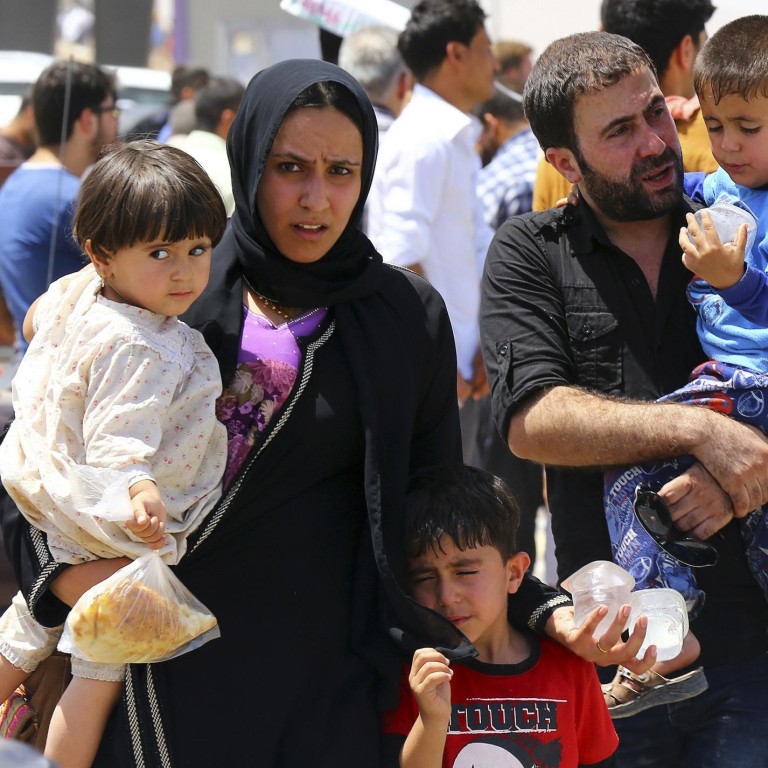
Islamist militants seize control of Mosul, Iraq's second largest city
Thousands of families flee as Iraqi premier calls for a state of emergency
Sunni extremists seized control of Iraq's second largest city of Mosul yesterday in a spectacular show of strength against the Shi'ite-led government, which called on parliament to declare a state of emergency.
The capture of Mosul by the Islamic State of Iraq and the Levant (ISIL) - an offshoot of al-Qaeda - and its allies followed four days of fighting in the northern city and attacks elsewhere.
Prime Minister Nuri al-Maliki responded by asking parliament to declare a state of emergency and announcing that the government would arm citizens to fight the militants.
Thousands of families were fleeing north towards the autonomous Kurdistan region, which shares a border with Nineveh province, of which Mosul is the capital.
"Mosul now is like hell. It's up in flames and death is everywhere," said Amina Ibrahim, who was leaving with her children. She lost her husband in a bomb attack last year.
The fall of Mosul deals a serious blow to Baghdad's efforts to fight Sunni militants, who have regained ground and momentum in Iraq over the past year.
ISIL has remained in control of parts of Falluja and Ramadi for the past six months and has carved out a cross-border swathe of influence in Syria - from al-Bab, east of Aleppo, through the lawless eastern deserts and into Anbar province, Iraq.
In a speech, Maliki urged the international community to support his country in its fight against "terrorism".
State television said the speaker of parliament had scheduled an emergency session for tomorrow to vote on Maliki's call to declare an emergency.
Police, military and security officials said the insurgents, armed with anti-aircraft weapons and rocket-propelled grenades, had taken over almost all police and army checkpoints in and around Mosul.

Two army officers said security forces had received orders to leave Mosul after militants captured the Ghizlani army base and set more than 200 inmates free from a high-security prison.
Policemen swapped their uniforms for plain clothes and discarded their weapons before fleeing the city. The bodies of soldiers and policemen, some of them mutilated, lay in the streets.
"We can't beat them. We can't. They are well trained in street fighting and we're not. We need a whole army to drive them out of Mosul," one officer said.
"They're like ghosts. They appear to hit and disappear within seconds."
Two police sources and a local government official said the militants had also broken into a jail called Badush, allowing more than 1,000 prisoners to escape.
They said most of them belonged to ISIL and al-Qaeda.
The retreating army and police set fire to fuel and ammunition depots to prevent the militants from using them.
University lecturer Zuhair al-Taie, who was trying to flee Mosul with his wife and three children, said ISIL's black banners were now flying over most army and government buildings. "The situation in Mosul is tragic," he said.
Ibraheem al Sumeide'i, a former adviser to Maliki who fell out with him over his policies, said the prime minister should step down so a national salvation government could be formed.
On Monday, Governor Atheel Nujaifi made a televised plea to the people of Mosul to stand their ground and fight. Hours later, Nujaifi himself fled to Baghdad, after militants besieged the provincial headquarters in Mosul.


